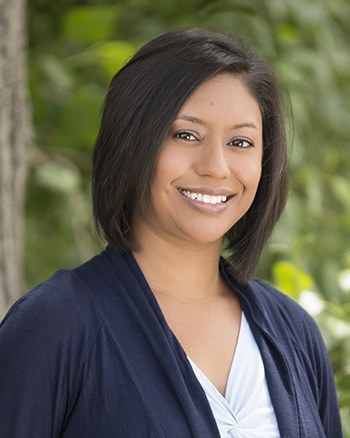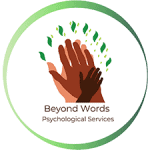
IAMAdoptee sat down with Chaitra Witra-Leiker and had the opportunity to more deeply understand the Adoption and Adverse Childhood Experiences Score.
 Darci Siegel: My name is Darci Siegel, I use she/her pronouns, and I am a content developer with IAMAdoptee. I’m excited to sit with Dr. Chaitra Wirta-Leiker, licensed psychologist and an adoptee from India.
Darci Siegel: My name is Darci Siegel, I use she/her pronouns, and I am a content developer with IAMAdoptee. I’m excited to sit with Dr. Chaitra Wirta-Leiker, licensed psychologist and an adoptee from India.
 Chaitra Wirta-Leiker: I’m Chaitra Wirta-Leiker, a licensed psychologist with a private practice in Denver, Colorado, where I specialize in adoption, trauma and racial identity work with adoptees and adoptive families with all ages. I’m connected to IAMAdoptee being that I am also an adoptee – I was adopted from India as an infant, so I try to carry that into the work that I do with the families that I work with.
Chaitra Wirta-Leiker: I’m Chaitra Wirta-Leiker, a licensed psychologist with a private practice in Denver, Colorado, where I specialize in adoption, trauma and racial identity work with adoptees and adoptive families with all ages. I’m connected to IAMAdoptee being that I am also an adoptee – I was adopted from India as an infant, so I try to carry that into the work that I do with the families that I work with.

Darci: Let’s dive in. Can tell us what ACE stands for and briefly describe what ACE is?
 Chaitra: ACE is an acronym for Adverse Childhood Experiences and it’s essentially a list of common traumatic experiences that a person may have during childhood. So experiences or emotions related to abuse or neglect or mistreatment of some kind or even things that may be related to natural disasters or other types of traumatic events.
Chaitra: ACE is an acronym for Adverse Childhood Experiences and it’s essentially a list of common traumatic experiences that a person may have during childhood. So experiences or emotions related to abuse or neglect or mistreatment of some kind or even things that may be related to natural disasters or other types of traumatic events.
 Darci: If someone is interested in knowing their ACE score or if they’re in a position where they’re being evaluated to determine their ACE score, who would one interact to get that information, to have that evaluation, and then how could that score impact someone’s health, both physically and mentally?
Darci: If someone is interested in knowing their ACE score or if they’re in a position where they’re being evaluated to determine their ACE score, who would one interact to get that information, to have that evaluation, and then how could that score impact someone’s health, both physically and mentally?
 Chaitra: A most of the time, you can work with a physician to get your assessed score or a mental health professional who specializes in trauma. When you know your ACE score you have a more objective understanding of the trauma that you may have experienced and how it impacted you.
Chaitra: A most of the time, you can work with a physician to get your assessed score or a mental health professional who specializes in trauma. When you know your ACE score you have a more objective understanding of the trauma that you may have experienced and how it impacted you.
A lot of people may not recognize as a teen or an adult how their physical and mental health has been impacted by childhood trauma in the ways that we carry that with us in our brain and our body over time. So by knowing that score, it can give you a more objective starting point in the healing process to understand what may need to be addressed.
 Darci: ACE scores are measured on a scale from 0-10. How do you arrive at a certain score? Is there a certain timeline or protocol in the evaluative process that practitioners use while working with an adoptee or a client?
Darci: ACE scores are measured on a scale from 0-10. How do you arrive at a certain score? Is there a certain timeline or protocol in the evaluative process that practitioners use while working with an adoptee or a client?
 Chaitra: Well, there’s not a particular protocol for adoptees, but I wish there was because I think adoption should be its own listed item within the list of all the potential traumatic experiences that a person might have in childhood.
Chaitra: Well, there’s not a particular protocol for adoptees, but I wish there was because I think adoption should be its own listed item within the list of all the potential traumatic experiences that a person might have in childhood.
I believe there are protocols out there, but I think it tends to work better when we use it qualitatively and ask about those particular items. Instead of focusing just on the score, we’re learning more about the context of what someone has experienced and how it felt to them or how they felt like it impacted them. As much as I think that the score can be useful, I tend to shy away more from the quantitative things and look more at the qualitative piece of what something meant to a person.
 Darci: Since ACE score is a range from 0 – 10, what do higher scores or lower scores indicate? If an adoptee had an ACE score of four or more, what would that mean for you? And what would that mean for an adoptee in terms of addressing the kinds of trauma that need healing or support?
Darci: Since ACE score is a range from 0 – 10, what do higher scores or lower scores indicate? If an adoptee had an ACE score of four or more, what would that mean for you? And what would that mean for an adoptee in terms of addressing the kinds of trauma that need healing or support?
 Chaitra: With a higher score, I think it’s really important to look at the individual experiences a person has had. The score can provide a good jumping-off point for awareness around how complex someone’s trauma is, such as if they’re a four or higher and if they have a lower score, it may be that the trauma is not as complex. And maybe it was a single incident or a pattern with a particular relationship, but not something that was overarching throughout different environments and relationships in their childhood. But the more complex the trauma, there’s typically more work to be done and in trying to heal from it.
Chaitra: With a higher score, I think it’s really important to look at the individual experiences a person has had. The score can provide a good jumping-off point for awareness around how complex someone’s trauma is, such as if they’re a four or higher and if they have a lower score, it may be that the trauma is not as complex. And maybe it was a single incident or a pattern with a particular relationship, but not something that was overarching throughout different environments and relationships in their childhood. But the more complex the trauma, there’s typically more work to be done and in trying to heal from it.

Darci: In talking about how traumatic experiences are evaluated, there’s a common term, PE, which stands for positive childhood experiences, as explained here.
“Although there is still much to learn about ACEs and how to prevent and mitigate their effects, we also all know that childhood experiences are not limited to those that involve adversity. All childhood experiences matter. In the last few years, researchers have started to examine the impacts of positive childhood experiences (PCEs) on children and adults.
In 2019, a team of researchers — Dr. Christina Bethell, Jennifer Jones, Dr. Narangerel Gombojav, Dr. Jeff Linkenbach and Dr. Robert Sege — found a dose-response association between positive childhood experiences and adult mental and relationship health among adults who had experienced ACEs, irrespective of how many ACEs they had. This means that it’s really important to have positive childhood experiences, no matter how much adversity you have in your life. And if you have a lot of adversity and a lot of positive childhood experiences, you are less likely to suffer the consequences of ACEs. However if you have no positive childhood experiences and few ACEs, the consequences of the ACEs are more likely to appear.
To find out what positive childhood experiences you have, answer the following questions. How much or how often during your childhood did you:
(a) feel able to talk to your family about feelings;
(b) feel your family stood by you during difficult times;
(c) enjoy participating in community traditions;
(d) feel a sense of belonging in high school;
(e) feel supported by friends;
(f) have at least two non-parent adults who took genuine interest in you; and
(g) feel safe and protected by an adult in your home.”
I’m wondering, what are your thoughts about this approach generally and also how we address questions like these, especially when we’re working with adoptees.
 Chaitra: I think that’s where the difference comes in. Having someone who is adoption informed and understands the trauma associated with that versus somebody who is more generalized in their awareness of trauma because it doesn’t specifically ask about adoption.
Chaitra: I think that’s where the difference comes in. Having someone who is adoption informed and understands the trauma associated with that versus somebody who is more generalized in their awareness of trauma because it doesn’t specifically ask about adoption.
It talks about abandonment, which can be a part of the adoption experience, but isn’t always and I think adoption itself, the losses and trauma associated with that are so nuanced that if there could be an item that specifically addresses adoption and what that experience of loss or separation was. More specifically, I think that would just enrich the entire ACE protocol to have something like that in place.
 Darci: How do we understand the impact it has on us when adoption is categorized as an adverse childhood experience?
Darci: How do we understand the impact it has on us when adoption is categorized as an adverse childhood experience?
 Chaitra: It’s a loss, plain and simple. There is a wide range of people and there’s a wide range of adoption experiences and those who have had very positive experiences all the way to those who have had very abusive and negative experiences that continue adding to their ACE score.
Chaitra: It’s a loss, plain and simple. There is a wide range of people and there’s a wide range of adoption experiences and those who have had very positive experiences all the way to those who have had very abusive and negative experiences that continue adding to their ACE score.
So with adoption, because it’s a loss that automatically causes separation from biological family and often biological race and culture, those are things that would be considered an adverse childhood experience because any type of loss involves change and changes require adjustment. For someone at a young age or even as a teenager, to have to make such a significant adjustment with everything in their lives changing, that absolutely can be an adverse experience.
 Darci: When you’re talking about children adjusting and to their understanding of an experience of their childhood is adverse, I think a lot about the resilience of children, especially at younger ages and as they come into their own as young adults and begin to navigate the world through that lens. What do you define as resilience? What role can an ACE evaluation and ACE score contribute to one sense of resilience or healing?
Darci: When you’re talking about children adjusting and to their understanding of an experience of their childhood is adverse, I think a lot about the resilience of children, especially at younger ages and as they come into their own as young adults and begin to navigate the world through that lens. What do you define as resilience? What role can an ACE evaluation and ACE score contribute to one sense of resilience or healing?
 Chaitra: I think that understanding our ACE score leads to having resilience because it gives us a way of identifying what we experienced and naming it. So for a lot of us as we’re growing up, we really have no way of knowing that what we’re experiencing could be labeled as traumatic. We tend to assume our lives are similar to other people’s lives. Even if we’re feeling scared or worried or unsafe, then that leads to, even if we know we felt that way, we still may minimize the impact of these traumatic experiences and end up internalizing the struggles that arise out of those traumas as something wrong with ourselves or that we’re limited or inferior in some way.
Chaitra: I think that understanding our ACE score leads to having resilience because it gives us a way of identifying what we experienced and naming it. So for a lot of us as we’re growing up, we really have no way of knowing that what we’re experiencing could be labeled as traumatic. We tend to assume our lives are similar to other people’s lives. Even if we’re feeling scared or worried or unsafe, then that leads to, even if we know we felt that way, we still may minimize the impact of these traumatic experiences and end up internalizing the struggles that arise out of those traumas as something wrong with ourselves or that we’re limited or inferior in some way.
So when we view our ACE score and can see our childhood traumas through a more objective lens, then we can more accurately label the experience as traumatic and be more aware of the impact those traumas may have had. When we know that there’s something that isn’t inherently wrong with us that’s causing the struggle and that it was something that happened to us and the environment, I think we’re more easily able to see our strengths and to recognize our resilience and ability to move through it and heal from it.
 Darci: Before we close out, what piece of advice do you have for adoptees who are just becoming familiar with an ACE score or who are potentially looking into figuring out what their score is for themselves?
Darci: Before we close out, what piece of advice do you have for adoptees who are just becoming familiar with an ACE score or who are potentially looking into figuring out what their score is for themselves?
 Chaitra: First, I think giving yourself the space to grieve because it’s hard to recognize that things that you may have minimized or just had to deal with and survive, that those things have had a long term impact, and to start to see patterns that have resulted out of that, that may have been unhealthy or just hurtful ways that you were impacted long term.
Chaitra: First, I think giving yourself the space to grieve because it’s hard to recognize that things that you may have minimized or just had to deal with and survive, that those things have had a long term impact, and to start to see patterns that have resulted out of that, that may have been unhealthy or just hurtful ways that you were impacted long term.
I think it’s important to give ourselves space to grieve first before we jump right into trying to heal or to fix things. And so we need to allow ourselves time to move through the process in a natural way. Whatever we’re feeling, it’s valid. And to allow space for that instead of suppressing it, because I always talk about feelings being like that, where they’re always changing – and we can’t suppress a thunderstorm or a tornado. And if we’re having distressing feelings, we shouldn’t suppress those. If they can move through naturally, then we do move on in the healing process.
To learn more about Chaitra, you can find a full professional bio on our About Us Page:

Beyond Words Psychological Services supports adoptees, members of the adoption constellation (parents, siblings, grandparents, aunts, uncles, cousins, friends), or professionals who works with the adoption constellation. Searching for a competent and compassionate therapist who understands the complexity of adoption can feel like a daunting task, and Chaitra’s goal is to make this process as easy as possible for you. Check out Chaitra’s website for a variety of at-home resources and learn more about the services and training she offers from my perspective as an adoptee, adoptive parent, and psychologist.




